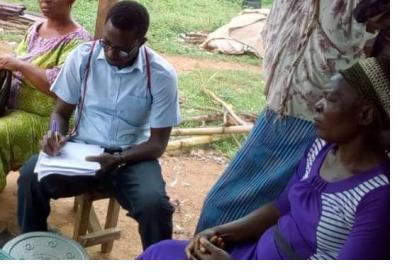Floods are among the most frequent natural hazards around the world, as well as in Africa, and can trigger devastating disasters among the most vulnerable communities. Climate change, and inadequate land-use/land-cover changes can exacerbate this situation and may erode hard-won gains in many developing countries. The first step to reduce the impacts of such floods is to understand the dynamics of floods throughout the floodplains more precisely.
To support an improved understanding of floods in West Africa, the Centre for Space Science and Technology Education (CSSTE) is leading the project entitled Multi-Scale Flood Monitoring and Assessment Services for West Africa (MiFMASS) that relies on Earth observation satellite data. The main objective of this project is to create a flood event database, which will include historical and real-time data for individual, company and government use across West Africa.
MiFMASS is one of the actions under the Global Monitoring for Environment and Security and Africa (GMES & Africa) initiative. Multiple partners in West Africa are involved in the project and are collaborating to close the significant gap in the availability of data on flood disasters. To achieve this objective, they are developing the updatable flood event database, which is meant to enable the mitigation of effects of disasters triggered by flood using Earth Observation Data. Apart from the flood event database, the MifMASS project is also working on a flood forecasting and assessment system, mapping flood extent during or after a flood through satellite image acquisition, processing and analysis, and developing a damage assessment module to evaluate the degree of damage after flood events.
A flood database capturing the quantitative and qualitative extent of flood events is a necessary tool to enhance the efficiency of flood monitoring, assessment and management in West Africa. Accurate and timely information can be provided to Disaster Management Organizations (DMOs), governments and international organizations before, during and after flood events; allowing them to provide support to affected areas quickly and efficiently. The database is currently undergoing assessment and will soon be available for public use.
The GMES & Africa is an action plan, which is meant to facilitate long-term structured dialogue between Africa and Europe on Earth Observation systems to respond to global needs, to manage the environment, understand and mitigate the effects of climate change and ensure civil security by providing information to policymakers, scientists, businesses and the public on a real-time basis.

